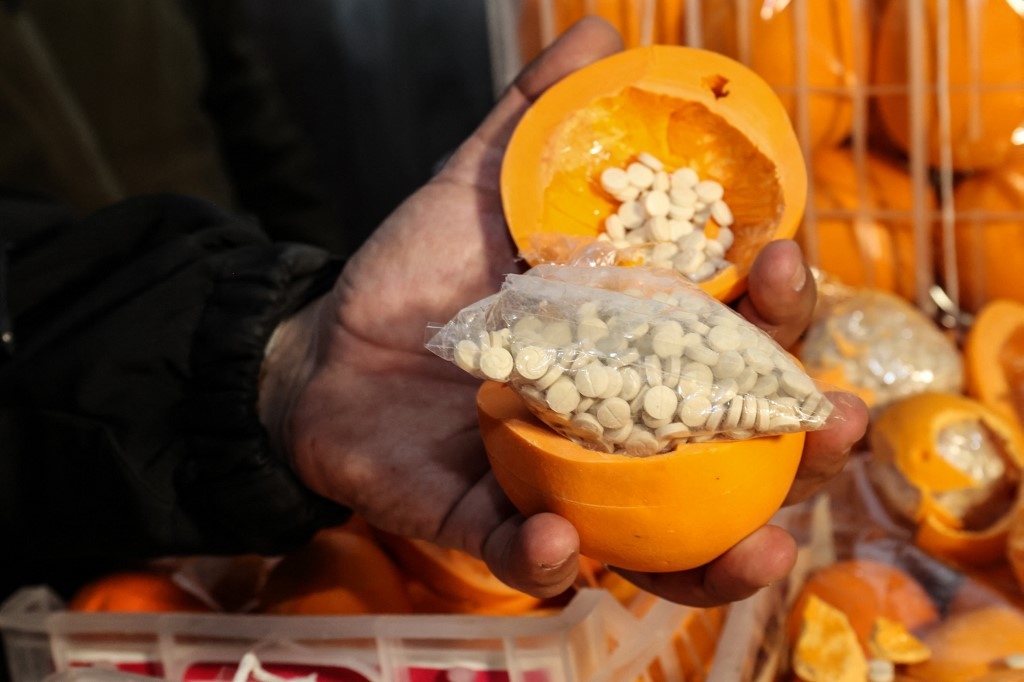Nine million Captagon pills hidden in plastic oranges intercepted in Beirut

Nine million Captagon pills were discovered inside a shipment of plastic oranges heading to the Gulf and were intercepted by Lebanese authorities on Wednesday, in the latest series of regional busts of the stimulant drug.
Captagon, which is a mixture of amphetamines, is a popular drug in the Middle East. Between 2015 and 2019, 44 percent of Captagon seizures were made in Middle Eastern countries, according to data from the United Nations office on drugs and crime.
"We want to send a message to the Arab world about our seriousness and our work to thwart evil from harming our Arab brother," Interior Minister Bassam Mawlawi said after he inspected the shipment at Beirut's port.
A customs officer told AFP that this cargo was en route to Kuwait.
Last week, Dubai police uncovered $15.8m worth of Captagon pills hidden inside a shipment of lemons.
The pills, which are usually smuggled in crates of pomegranates, are extremely popular in Saudi Arabia, the biggest consumer market for illegal recreational use in the region. The stimulant drug is manufactured in Lebanon and Syria. In April, more than five million off-white pills were found and seized by customs in the Saudi port of Jeddah.
Following the seizure, Riyadh banned imports - including fruits and vegetables - from Lebanon, which is facing a dire economic crisis, making farmers already living in poverty even poorer. Analysts believe the ban could push more people into the Captagon trade for lack of alternatives.
“There is now a competition over Captagon being used as an alternative revenue source, especially in the face of sanctions,” Caroline Rose, a researcher with the Newlines Institute, told Middle East Eye last month.
“So, the worse that the economy gets, the more players are going to want to turn to Captagon production and smuggling as a source of income.”
During a meeting last month, Gulf Cooperation Council leaders urged Lebanese authorities to tighten border controls and take initiatives to prevent smuggling into Gulf states.
According to a European Union-funded report by the Center for Operational Analysis and Research, "Captagon exports from Syria reached a market value of at least $3.46 billion" in 2020.
The Center for Operational Analysis and Research said in a European Union-funded report released in April that "Captagon exports from Syria reached a market value of at least $3.46 billion" in 2020.
Middle East Eye propose une couverture et une analyse indépendantes et incomparables du Moyen-Orient, de l’Afrique du Nord et d’autres régions du monde. Pour en savoir plus sur la reprise de ce contenu et les frais qui s’appliquent, veuillez remplir ce formulaire [en anglais]. Pour en savoir plus sur MEE, cliquez ici [en anglais].




